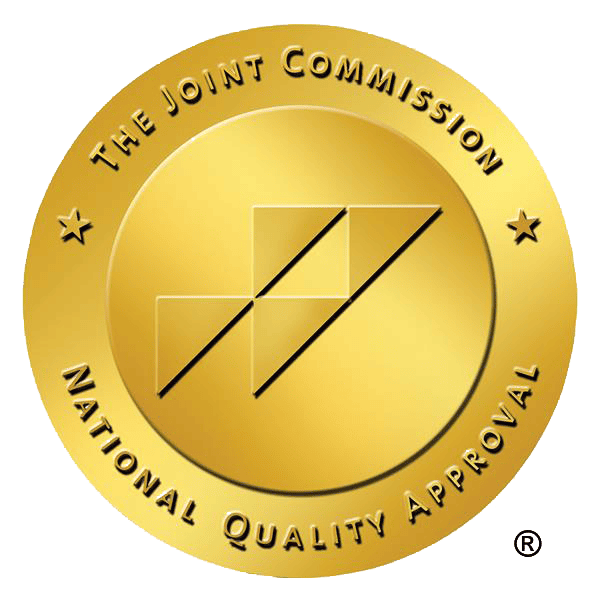It’s estimated that one-third of the population receives a mental disorder diagnosis, and about half of those individuals also struggle with a substance use disorder, leading to what is known as a dual diagnosis (or co-occurring disorder). Our dual diagnosis treatment in Austin, TX, provides crucial support for those facing this complex challenge.
Dual diagnosis can profoundly affect one’s life, relationships, and overall well-being. However, relief is available for those in Texas through the specialized care at The Prairie Recovery Center. Our team of mental health professionals, healthcare providers, and specialists is committed to providing mental health and addiction treatment in Austin, guiding you toward lasting recovery.
What is dual diagnosis?
A dual diagnosis is when someone has a mental health and substance abuse disorder at once. In addition, dual diagnosis is common among those addicted to alcohol or drugs.
According to statistics, 45 percent of Americans suffer from a dual diagnosis. Either the addiction or the mental illness sets in first. From there, either condition can make the other worse.
Identifying a dual diagnosis can be tricky since addiction and mental health affect one another. The key to a solid recovery is simultaneously getting treatment for both conditions.
It is a vicious cycle of seeking relief from the symptoms of a mental health disorder. Using drugs or alcohol only offers a temporary fix. Then, substance use disorder symptoms escalate to significant mental health symptoms until the situation is out of control, and there is never any relief. Finally, a crisis ensues, and an opportunity for treatment becomes a realistic possibility.
Our dual diagnosis treatment in Austin, TX, is essential for recognizing and addressing the complex dynamics between substance use disorders and mental health. Understanding these connections is crucial for those seeking effective treatment and recovery.
At Texas dual diagnosis treatment centers, common mental health conditions that frequently coincide with substance use disorders include:
- Depression and bipolar disorder
- Anxiety disorders
- Panic disorder
- Obsessive-compulsive disorder
- Post-traumatic stress disorder
- Eating disorders
- Borderline personality disorder (BPD)
The severity of the symptoms of the mental health disorder diagnosed with substance use disorder can vary in intensity. Additionally, the physical ramifications of the substance use disorder can also affect mental health.
Understanding that these disorders do not stand alone but rather feed into and off each other is the first step to proper recovery.

Signs and Symptoms of Dual Diagnosis
Those with a substance use disorder have individual key factors that determine the intensity of the symptoms they will experience. For example, the type of drug or alcohol in use, the length of addiction, and the individual’s physical well-being all contribute to their unique experience.
Dual diagnosis treatment in Austin, TX, employs professionals to sort out through screening and assessment tools what the correct diagnosis is and what the treatment plan should be.
The most common signs and symptoms of dual diagnosis include:
- Depression and anxiety
- Extreme weight gain or loss
- Sweating and overheating
- Thoughts of suicide
- Tremors and stress
- Difficulty with focus and concentration
The typical behavioral signs and symptoms of dual diagnosis can include any of the following:
- Isolating and withdrawing from people
- Irritability
- Selfishness
- Sleep disturbances
- Rapid mood swings
- Increased substance use
The signs and symptoms of both disorders can be similar. The following is a list of symptoms of a substance use disorder:
- Withdrawal from family and friends
- Sudden, significant changes in behaviors
- Use of substances regardless of danger or risk
- Loss of control over the substance
- Development of tolerance and withdrawal symptoms
- Needing the drug to function
About Our Dual Diagnosis Treatment in Austin, TX
Our dual diagnosis treatment centers in Texas put substance use disorder as the top priority in every phase of treatment, starting with detox. The detox program rids the body of all drugs, alcohol, or other harmful substances.
The patient needs to begin therapy once detox is over immediately. There is always a danger of relapse, and therapy offers new, healthy, positive coping mechanisms to fight cravings and urges.
Individual and group therapy addresses both the mental health disorder and the underlying causes of the addiction. Group therapy has been considered an essential component of twelve-step programs for alcohol and drug addiction.
Building a considerable peer support system is advantageous for those with dual diagnosis. Therefore, group sessions offer the foundation for building trust, new relationships, and being vulnerable. For these reasons, we offer group therapy and peer support at our Texas dual diagnosis treatment centers.
The following therapies are evidence-based, proven methods of changing behavior while developing a unique personal awareness.
- Cognitive-behavioral therapy (CBT) identifies negative behaviors from mental health disorders and addiction. CBT explores thoughts, actions, and how to change old behaviors to new productive and healthy behaviors to maintain sobriety.
- Dialectical-behavioral therapy (DBT) provides self-regulation methods to manage symptoms in the best possible way. DBT also presents healthy, positive coping mechanisms and techniques to stay in the present moment.
- Medication-assisted therapy (MAT) is an effective method for safely using medications to aid in withdrawal symptoms and treat mental health disorder symptoms.
- Holistic Therapies provide opportunities for self-expression through art and music. Rediscovering the new sober person through gaining self-confidence in learning new skills.
Benefits of Our dual diagnosis treatment in Austin, TX
Our dual diagnosis treatment offers many benefits, starting with the confidence and trust in our professional staff. Our team is well-versed in handling the complexities of dual diagnosis.
The purpose of our dual diagnosis treatment in Austin is to treat the client as a whole person and consider the mind-body connection. This comprehensive approach includes aftercare, sober living opportunities, and ongoing support from alumni, all integral parts of the recovery process.
Family therapy is also available through our programs. We encourage family and friends to learn how best to support their loved ones through this journey. Our professional staff works closely with patients and their families to share the goal of a healthy, sober lifestyle.
Additionally, as one of the best dual diagnosis treatment centers in Texas, we provide holistic therapies to complement the treatment plan with new opportunities for self-expression and self-awareness.
Our focus is on the patient’s well-being, ensuring long-term sobriety with the tools and support necessary to prevent relapse.





